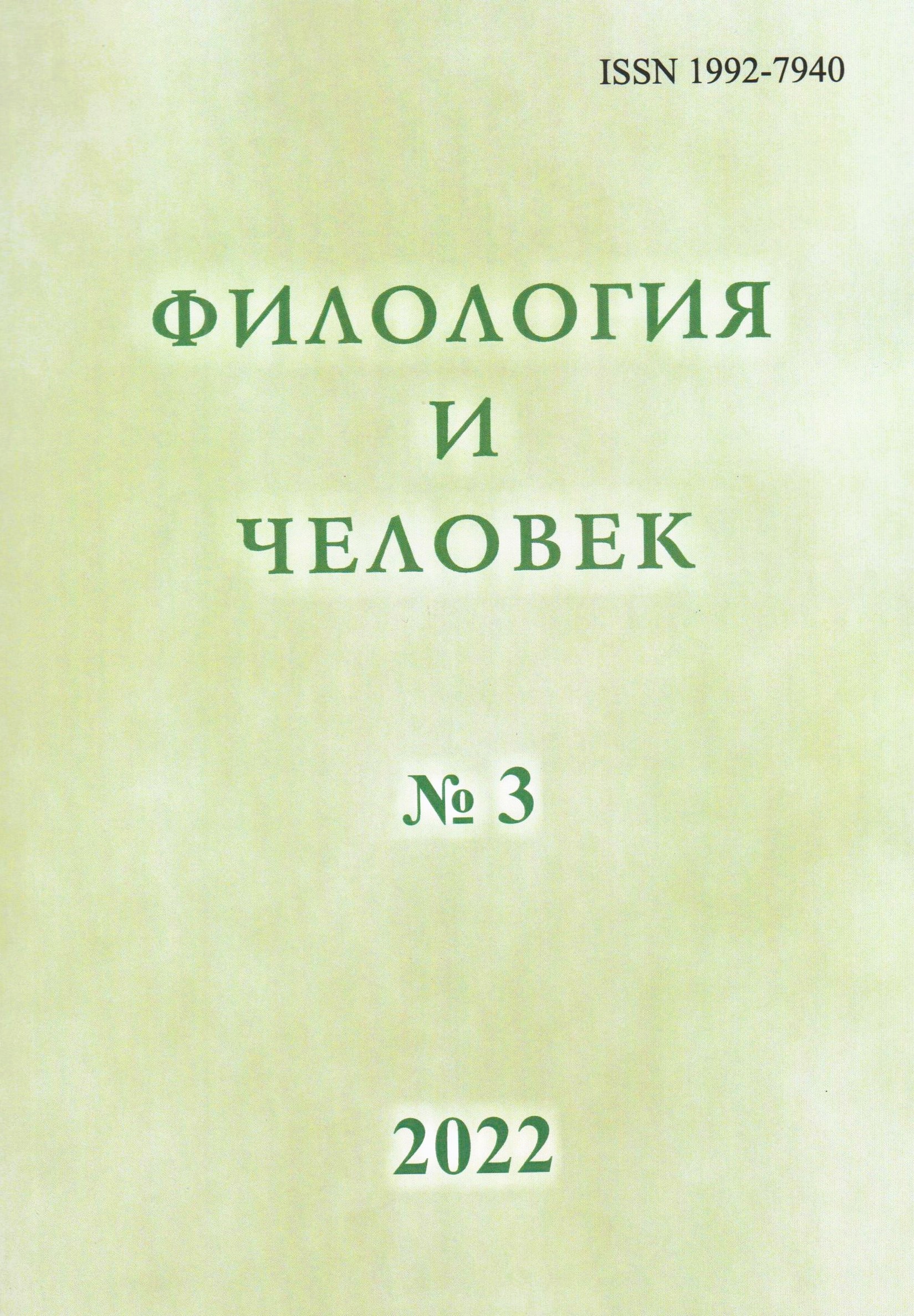Text Categories in the Title of a Short Story (on the collection of stories “How We Are Hungry” by Dave Eggers).
Abstract
The article discusses the role of the title in the manifestation of text categories in a short story. The material for the study is the collection of short stories "How We Are Hungry" by a contemporary American writer Dave Eggers which is of interest in many respects, in particular in terms of formal, content and functional peculiarities of short story titles. The analysis has shown that the titles of this collection are rather diverse both in form and functions they perform; they correlate differently with the text of the work, and set different vectors for predicting the content and modality of the text. All the titles of the collection actualize the categories of integrity, cohesion and coherence. In the vast majority of the titles the categories of informativity, subjectivity and intentionality are realized, the last two being leading and most significant. The analysis allows to conclude that the manifestation of text categories in the titles of D. Eggers’ short stories is carried out in a complicated irregular way, which provokes variability of interpretations.
Downloads
Metrics
References
Богданова О.Ю. Лингвостилистический анализ заголовка как элемента англоязычного текста // Ярославский педагогический вестник. 2006. № 1.
Гальперин И.Р. Текст как объект лингвистического исследования. М., 2006.
Кожина Н.А. Заглавие художественного произведения: онтология, функции, параметры типологии // Проблемы структурной лингвистики. М., 1988.
Сыров И.А. Способы реализации категории связности в художественном тексте: автореф. дисс. докт. филол. наук. М., 2005.
Adams H. Titles, Titling, and Entitlement to // The Journal of Aesthetics and Art Criticism. 1987. Vol. 46 (1).
De Beaugrande R., Dressler W.U. Introduction to Text Linguistics. New York, 1981.
Derrida J. Before the Law // Acts of Literature. ed. by Derek Attridge. London and New York, 1992.
Genette G. Structure and Functions of the Title in Literature // Critical Inquiry. 1988. Vol. 14 (4).
Maiorino G. First Pages. A Poetics of Titles. University Park, 2008.
Pes A. The function of titles in some postcolonial literary texts in English // Iperstoria. Journal of American and English Studies. 2015. № 5.
Tucan G. What is a Short Story Besides Short? Questioning Minds in Search of Understanding Short Fiction // Romanian Journal of English Studies. 2014. Vol. 11 (1).
Редакционная коллегия научного журнала «Филология и человек» придерживается принятых международным сообществом принципов публикационной этики, отраженных, в частности, в рекомендациях Комитета по этике научных публикаций (Committee on Publication Ethics (COPE), Кодекс этики научных публикаций), а также учитываeт ценный опыт авторитетных международных журналов и издательств.
Во избежание недобросовестной практики в публикационной деятельности (плагиат, изложение недостоверных сведений и др.), в целях обеспечения высокого качества научных публикаций, признания общественностью полученных автором научных результатов каждый член редакционной коллегии, автор, рецензент, издатель, а также учреждения, участвующие в издательском процессе, обязаны соблюдать этические стандарты, нормы и правила и принимать все разумные меры для предотвращения их нарушений. Соблюдение правил этики научных публикаций всеми участниками этого процесса способствует обеспечению прав авторов на интеллектуальную собственность, повышению качества издания и исключению возможности неправомерного использования авторских материалов в интересах отдельных лиц.





